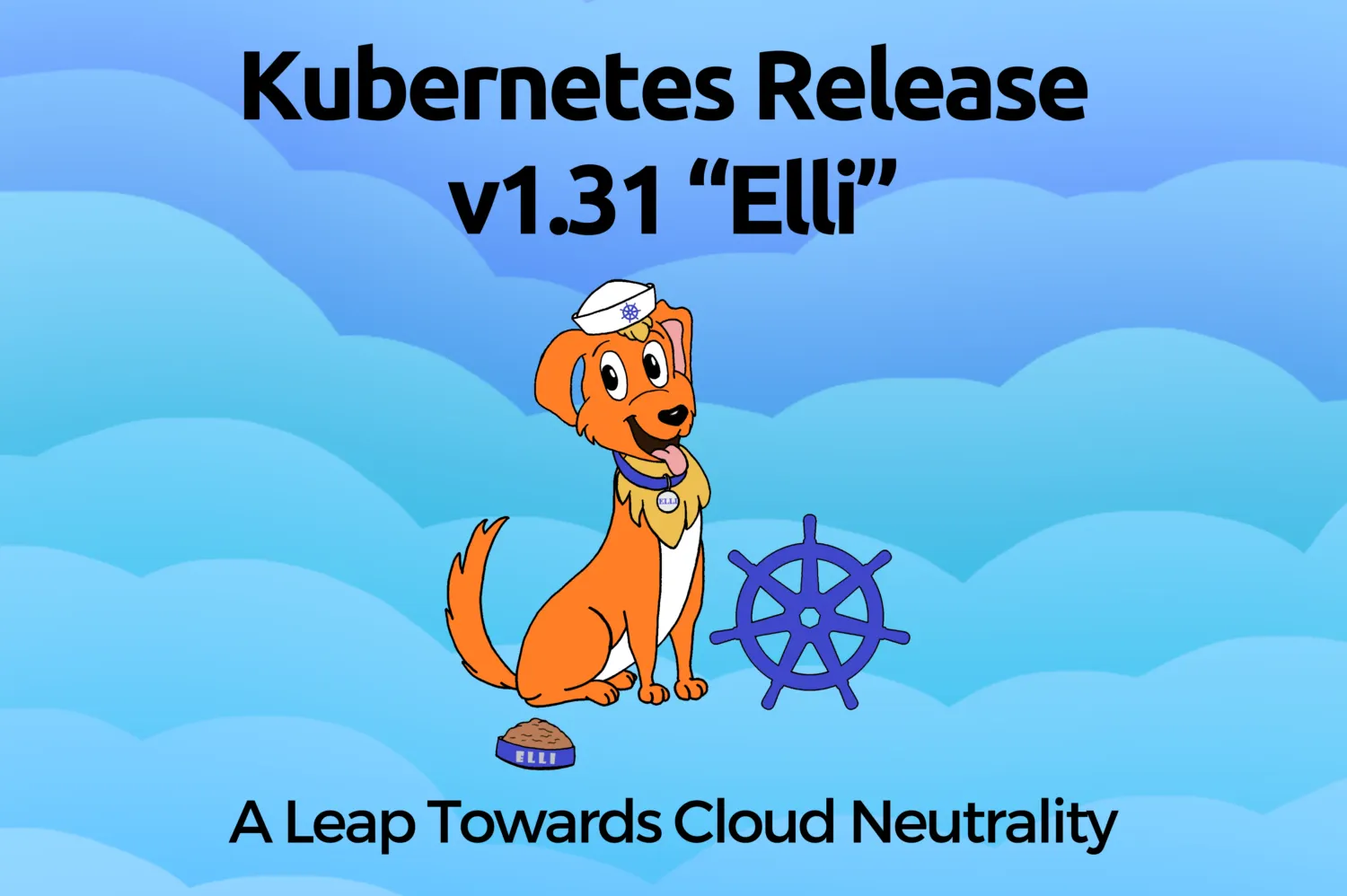Kubernetes 1.31 'Elli' Release: A Leap Towards Cloud Neutrality - Key Features and Updates
The Kubernetes community has released version 1.31, codenamed “Elli,” bringing a variety of significant updates and improvements that reflect Kubernetes’ continuous evolution toward becoming a cloud-agnostic and secure platform. This release is packed with new features, deprecations, and stability enhancements that aim to improve overall cluster performance and management. Let’s have a look at some of the highlights of the newest Kubernetes release.
Major Deprecations and Removals
- Retirement of the status.nodeInfo.kubeProxyVersion Field
Kubernetes 1.31 bids farewell to the kubeProxyVersion field within the node status. This field was often unreliable, and its removal is part of an effort to simplify and clean up the system. Users will notice this change when they run commands like kubectl describe node <node-name> and find that this field is no longer available. - Removal of In-Tree Cloud Provider Integrations
Continuing its journey towards cloud neutrality, Kubernetes has now fully transitioned away from in-tree cloud provider integrations. By externalizing these integrations to cloud controller managers, each cloud provider can now develop and maintain their Kubernetes support independently of the core Kubernetes system. This shift promotes better security, faster updates, and a more streamlined Kubernetes experience, allowing the platform to remain vendor-neutral. - –keep-terminated-pod-volumes Flag Removed
Kubernetes has officially retired the –keep-terminated-pod-volumes flag in kubelet. This deprecation encourages users to update their configurations, as this flag has been deprecated for some time and is no longer needed. - Non-CSI Volume Limit Plugins Phased Out
The transition towards the Container Storage Interface (CSI) architecture is now complete. Non-CSI volume limit plugins like EBSLimits and GCEPDLimits have been deprecated in favor of the NodeVolumeLimits plugin, which better aligns with the CSI architecture. Users are encouraged to replace these older plugins in their configurations to stay up-to-date.
Notable New Features
- Enhanced Security with AppArmor Integration
Kubernetes now includes enhanced support for AppArmor, a security module that lets users define restrictive profiles for their containers. This feature boosts cluster security by preventing compromised containers from accessing sensitive resources. Developers can configure AppArmor profiles directly in their pod specifications, adding an extra layer of protection. This feature will be definitely appreciated by Debian and Ubuntu AppArmor users. - Unhealthy Pod Eviction Policy for PodDisruptionBudget
PodDisruptionBudget (PDB) gains a valuable update with the introduction of an unhealthy pod eviction policy. This ensures that critical pods are not evicted during resource shortages, helping maintain application stability even when parts of the cluster are under high load. - Persistent Volume Reclaim Policy Enhancements
The update offers more granular control over how persistent volumes are handled after their claims are deleted. This helps with better lifecycle management and debugging of storage-related issues in Kubernetes clusters. - Multiple Service CIDRs
The introduction of multiple Service CIDR blocks allows more flexible routing and load-balancing strategies, particularly useful for large, complex networks. This update helps Kubernetes handle services across multiple network ranges, improving traffic management and scalability. - Traffic Distribution for Services
A new field for traffic distribution optimizes how Kubernetes directs traffic across different endpoints. This can improve reliability, reduce latency, and enhance the overall performance of your applications.
Kubernetes 1.31 Performance and Usability Enhancements
- Improved Ingress Connectivity
Kubernetes 1.31 enhances ingress connection management, ensuring better reliability for kube-proxy, especially on nodes that are terminating or unhealthy. This improvement reduces traffic disruptions, ensuring smoother node terminations and better network performance. - Declarative Node Maintenance
Node maintenance is now simpler and more declarative in Kubernetes 1.31. By managing maintenance through Node objects, administrators can ensure more predictable and efficient maintenance workflows across the cluster. - Scheduling Hints for VolumeRestriction Plugin
The VolumeRestriction plugin now supports scheduling hints, guiding the Kubernetes scheduler to place pods on nodes with the right volume resources. This feature ensures that workloads are efficiently placed based on their storage needs, reducing the risk of scheduling failures or resource bottlenecks.
Security and Debugging Improvements
- Smarter Job Management
Kubernetes 1.31 introduces better control for job management by distinguishing between retriable and non-retriable pod failures. This allows for more efficient handling of job failures and helps administrators better manage workloads in complex environments. - Expanded Debugging Capabilities
Developers now have more flexibility when debugging applications, thanks to custom profiles for the kubectl debug command. These custom profiles allow for tailored debugging environments, making it easier to investigate issues with secure or shell-less containers.
Closing Thoughts
With Kubernetes 1.31, the focus remains on improving security, performance, and cloud neutrality. The removal of outdated features, the introduction of smarter security measures, and enhancements in traffic management all contribute to a more streamlined, efficient, and robust Kubernetes ecosystem.
As Kubernetes continues to evolve, staying updated with these changes is essential for keeping your clusters running smoothly. If you’re planning to begin your Kubernetes journey or have already started and could use some expert guidance, we’re here to help!
Whether you’re setting up your first cluster, navigating the latest features in Kubernetes 1.31, or upgrading your existing infrastructure, our team of experts is ready to support you with every step of the way.
Reach out to us today and let’s work together to ensure your Kubernetes deployment is secure, scalable, and future-ready!


